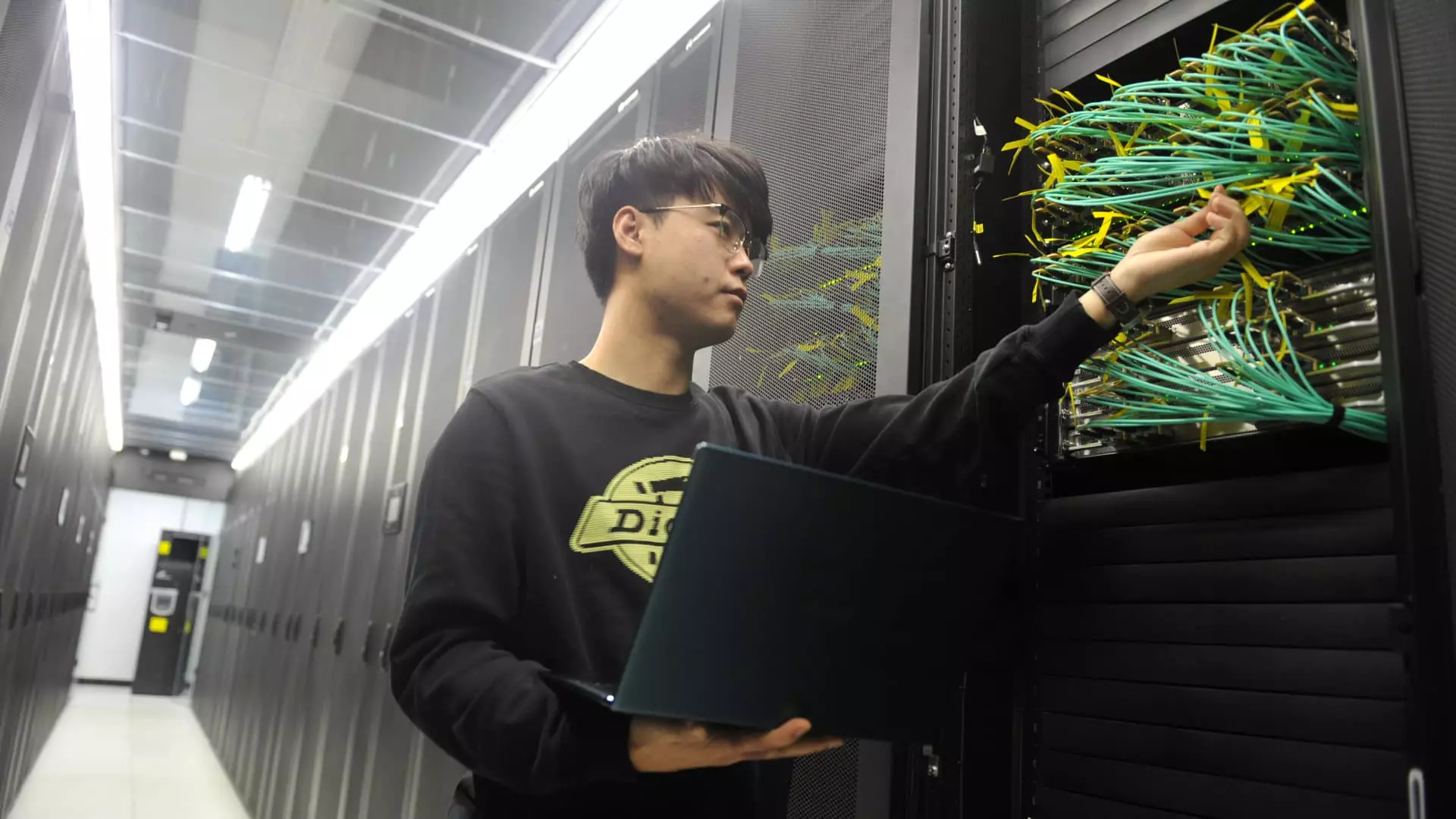As the economic tug-of-war between the U.S. and China heats up, the implications for global markets and technological innovation become increasingly complex. The ongoing trade tensions are not just about tariffs and economic sanctions; they represent a battleground for technological supremacy, especially in the realm of artificial intelligence (AI). While some analysts see bleak forecasts for China’s economic growth amid rising tensions, others suggest that the country’s growing focus on AI could turn these adversities into opportunities. The narrative is shifting from mere survival in a hostile trade environment to a driven push toward innovation that could redefine business sectors.
China is doubling down on AI technologies, and it appears that a select few companies will benefit immensely. Firms such as Kingsoft Office and Kingdee are increasing their technological capabilities in anticipation of an AI-driven market, which some analysts believe will be central to China’s growth strategy. In particular, the rise of generative AI technologies, exemplified by DeepSeek, signifies a notable shift in the approach toward automation and digital efficiency.
The Role of Localized Solutions
In light of severe trade barriers, China’s response has been a concerted effort to bubble up local technology solutions that can operate independently of U.S.-based technologies and platforms. The emergence of the Huawei ecosystem and its ability to natively support home-grown applications may serve as a key springboard for domestic companies. This is not merely about surviving tariffs; it’s a strategic play to ensure rapid technological growth while insulating the economy from external shocks.
The rapid user adoption of Kingsoft’s WPS software—reportedly reaching nearly 20 million users—is indicative of a significant shift in consumer behavior. When faced with geopolitical uncertainty, consumers and businesses alike become keen on localized options that seem less susceptible to foreign trade policies. This behavioral change hints at a possible reorientation in the Chinese market, where reliance on foreign technologies may diminish in favor of homegrown alternatives.
Resilience in Adversity
Despite ominous forecasts from institutions like Goldman Sachs and Citi regarding China’s economic prospects, our attention should pivot toward the inherent resilience of Chinese companies. Major players within the technology sector are not sitting idly by; they are actively leveraging the challenges posed by U.S. trade policies to accelerate innovation. For instance, the pivot of Kingdee into becoming a full-fledged enterprise management AI company showcases a proactive adaptation to market conditions.
Furthermore, the AI sector appears to be relatively insulated from the repercussions of the tariff wars. Demand for AI-driven services seems buoyant, largely detached from the ongoing frictions in China-U.S. trade. Long-term forecasts paint an optimistic picture, suggesting that AI spending may significantly contribute to China’s GDP in the years to come. In contrast to traditional industries facing trade barriers, the technology sector could very well become the economic cornerstone of China’s future.
The Importance of Digital Infrastructure
Focus on digital infrastructure is integral to China’s strategy to mitigate the effects of tariffs. Companies involved in internet data centers (IDCs) like GDS and Vnet are poised to reap the benefits of a growing market. As traditional trade dynamics warp and warp again, the demand for robust data centers remains strong, driven by a domestic need that outstrips the impact of external pressures. With an expected revenue growth trajectory, companies in this sector are becoming vital components in supporting not only local businesses but also emerging start-ups that depend on cloud infrastructure.
Nomura’s insights underscore that the phasing of AI and cloud computing infrastructure is not merely reactive; it’s a forward-looking investment to solidify China’s leading position in global technology. The utilization rates in these sectors are poised to reach critical thresholds that can ensure a sustained competitive advantage despite external pressures.
A Paradigm Shift Towards AI Dominance
The landscape of international trade is evolving in such a way that it impacts not only how countries approach economics but also how they perceive technological advancement. With China’s ambitious AI strategy marked by local innovation, there’s a palpable sense among investors and analysts that AI is not just an industry but rather a catalyst for broader economic resilience.
As China seeks to become a dominant player in AI technologies, there is a revolutionary dynamism at play, where trade tensions could ironically fuel further advancements. The dichotomy between reduced growth forecasts and the burgeoning opportunity within AI suggests an underlying complexity that demands attention. China’s localization of technology, investment in digital infrastructure, and strong push for AI innovation might just signify the dawn of a new era in global tech leadership.

